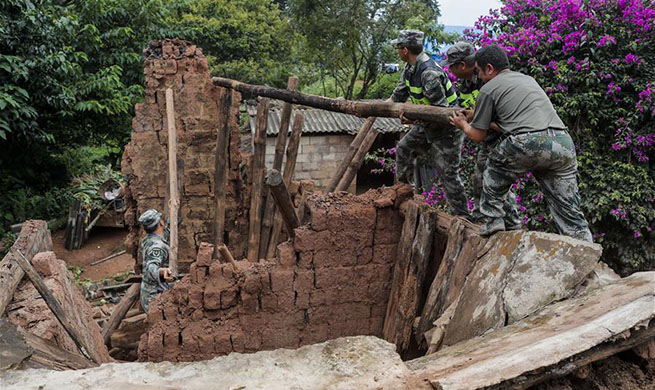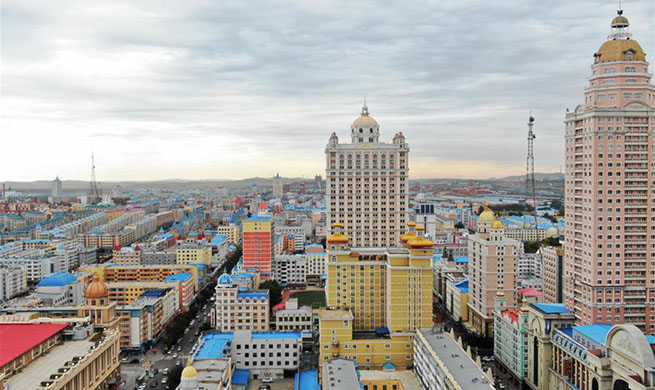LONDON, Sept. 8 (Xinhua) -- Britain's first ever case of monkeypox in a human was confirmed Saturday night, Public Health England (PHE) announced.
The patient, a Nigerian national, is undergoing expert treatment in the infectious disease unit at the Royal Free Hospital in London after being transferred from at a naval base in Cornwall.
PHE said in a statement: "This is the first time this infection has been diagnosed in the UK. Monkeypox is a rare viral infection that does not spread easily between people. It is usually a mild self-limiting illness and most people recover within a few weeks. However, severe illness can occur in some individuals."
The patient is a resident of Nigeria, which is where they are believed to have contracted the infection, before travelling to Britain, PHE added.
"The infection can be spread when someone is in close contact with an infected person; however there is a very low risk of transmission to the general population," the statement said.
As a precautionary measure, PHE experts are working closely with the NHS and will be contacting people who might have been in close contact with the individual to provide information and health advice.
This includes contacting a number of passengers who travelled in close proximity to the patient on the same flight to Britain. People without symptoms are not considered infectious but, as a precaution, those who have been in close proximity are being contacted to ensure that if they do become unwell they can be treated quickly. If passengers are not contacted then there is no action they should take, said a spokesperson for PHE.
Michael Jacobs, clinical director of infection at the Royal Free Hospital in London, said: "Monkeypox is, in most cases, a mild condition which will resolve on its own and have no long-term effects on a person's health. Most people recover within several weeks. It is a rare disease caused by monkeypox virus, and has been reported mainly in central and west African countries.
"It does not spread easily between people and the risk of transmission to the wider public is very low. We are using strict isolation procedures in hospital to protect our staff and patients."













